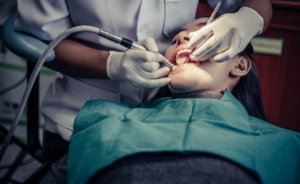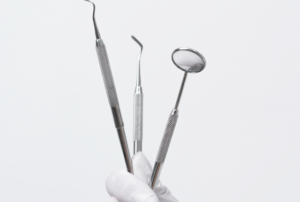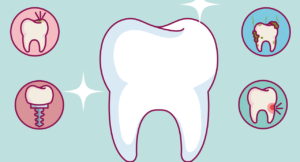Freddie Mercury, the legendary Queen frontman, was celebrated not only for his electrifying performances and unmatched vocal prowess but also for his distinctive smile, which left an indelible mark on the world of music. Freddie’s dental peculiarities have sparked curiosity and speculation for decades, prompting fans and experts alike to ponder how his unique dental structure may have influenced his singing capabilities.
This article explains why he consciously decided to preserve his natural smile despite the potential for cosmetic enhancement.
What is Different about Freddie Mercury Teeth?
Freddie Mercury’s smile was as unique as his voice, primarily due to an oral condition known as Hyperdontia. Freddie Mercury teeth condition was hyperdontia, characterized by the presence of extra teeth beyond the usual number, and in Freddie’s case, it resulted in a pronounced overbite. This additional dental attribute not only defined his physical appearance but also raised questions about its impact on his vocal performance.
How Many Teeth Did Freddie Mercury Have?
It is reported that Freddie Mercury had four extra teeth, adding to the normal adult count and contributing to his distinctive overbite. Freddie Mercury extra teeth were positioned in his upper jaw, creating a fuller, more pronounced appearance that became one of his most recognizable features.
Did Freddie Mercury Teeth Affect His Voice?
The theory that Freddie Mercury’s additional teeth played a role in his extraordinary vocal range and unique sound has been a subject of much discussion among fans and vocal experts. Some suggest that the extra space in his mouth may have allowed for greater resonance, potentially contributing to his ability to produce a wide array of sounds and octaves. While definitive scientific evidence to support this theory may be lacking, the notion adds an intriguing layer to the legend of Mercury’s unparalleled musical talents.

Why Didn’t Freddie Mercury Fix His Teeth?
Despite the prominence of his dental condition, Freddie Mercury chose not to undergo corrective surgery to alter his smile. This decision was rooted in a deep-seated fear that any changes to his oral structure could negatively impact his vocal capabilities, which were central to his identity as a performer. Moreover, Mercury’s embrace of his unique appearance speaks volumes about his confidence and self-acceptance, reinforcing the idea that true artistry lies in celebrating one’s individuality rather than conforming to conventional beauty standards. His decision not to have his teeth fixed Freddie Mercury teeth, remains a testament to his unwavering commitment to his art.
This deeper look into Freddie Mercury’s relationship with his dental condition reveals a complex interplay between physical attributes and artistic expression. Mercury’s choice to keep his teeth unaltered underscores a profound message about the essence of identity and the power of authenticity in the face of global fame.
What is Hyperdontia?
Hyperdontia is a fascinating dental condition where an individual has more teeth than the standard adult count of 32. These extra teeth, known as supernumerary teeth, can appear in any area of the dental arch and vary widely in shape, size, and alignment. Understanding hyperdontia not only involves exploring its prevalence and presentation but also delving into the myriad ways it affects individuals, from simple aesthetic concerns to complex oral health issues.
What are the Reasons for Hyperdontia?
The origins of hyperdontia are as varied as the condition itself, with genetic factors playing a significant role. In many cases, hyperdontia is hereditary, suggesting a direct link to familial dental patterns.
Beyond genetics, hyperdontia has been associated with a range of syndromes and diseases, such as Gardner’s syndrome and cleidocranial dysostosis, which include multiple dental abnormalities among their symptoms.
Environmental factors and certain medications during tooth development stages may also contribute to this condition. Understanding these causes is crucial for early detection and management, potentially mitigating its impact on oral health.

How to Fix Hyperdontia?
The approach to hyperdontia removal depends on the number, location, and effect of the extra teeth on dental health and aesthetics. Dental professionals may recommend the extraction of supernumerary teeth.
Especially if they impede the eruption of permanent teeth, cause overcrowding, or lead to malocclusion (misalignment of teeth). In some cases, orthodontic treatment may be necessary to correct the alignment and ensure optimal oral functionality and appearance post-extraction.
The decision to remove extra teeth and the choice of the treatment plan are made based on individual assessments, aiming to preserve or enhance oral health while minimizing potential complications.
Can Supernumerary Teeth Create Health Issues?
While having one or two extra teeth might seem benign, supernumerary teeth can lead to many oral health issues. Overcrowding is a common concern, making it difficult to maintain proper oral hygiene and increasing the risk of cavities and gum disease. Furthermore, extra teeth can obstruct the normal eruption of adjacent teeth, leading to impaction or displacement.
In severe cases, the roots of surrounding teeth can be resorbed, or the jawbone can be affected, necessitating more complex dental interventions. The potential for these complications underscores the importance of early diagnosis and management of hyperdontia.

How Rare is it to Have 2 Extra Teeth?
While hyperdontia is relatively uncommon, having two extra teeth is among the more frequently observed manifestations of the condition. The prevalence of hyperdontia varies globally and is influenced by genetic and environmental factors.
Despite its rarity, hyperdontia represents a significant variation in human dental development, with cases ranging from a single additional tooth to extreme instances where multiple supernumerary teeth affect oral health and development significantly. The study of hyperdontia and its variations provides valuable insights into dental anomalies, highlighting the complexity of human oral health.
What Celebrities Have Hyperdontia?
Hyperdontia, a condition marked by having extra teeth, isn’t limited to the realms of medical textbooks; it has also made its presence known among the glittering world of celebrities. This dental anomaly touches the lives of those in the spotlight, proving that such peculiarities are part of the human experience, regardless of fame. Here, we explore some notable figures who have lived with hyperdontia, sharing their stories to highlight the prevalence and impact of this condition across diverse fields.
- Tom Cruise, who, early in his career, reportedly had issues with his teeth, including misalignment and possibly supernumerary teeth, before undergoing extensive dental work to achieve his now-iconic smile. Although specifics about supernumerary teeth are less documented, Cruise’s dental transformation is a testament to modern dentistry’s ability to address and rectify such conditions.
- Hilary Duff. In her case, Duff made headlines when she revealed that she had undergone dental surgery to remove extra teeth, showing that even those in the public eye are not immune to such dental challenges.
- In the world of sports, Michael Strahan, the former NFL player and television personality, has become almost as famous for his distinctive gap-toothed smile as for his on-field prowess. While not a case of hyperdontia, Strahan’s embrace of his dental uniqueness shares a common thread with the acceptance of extra teeth, highlighting the beauty of individual differences.
These stories of celebrities dealing with hyperdontia and other dental anomalies serve as powerful reminders of the universality of such conditions. They underscore a significant message: embracing one’s unique features is a form of self-acceptance and authenticity that resonates beyond the confines of dental health, touching on deeper themes of identity and self-expression.

Freddie Mercury’s fearless acceptance of his hyperdontia, alongside the stories of Tom Cruise, Hilary Duff, and Michael Strahan dealing with their dental conditions, offers a broader narrative about the beauty of embracing one’s natural uniqueness.
These stories not only demystify dental anomalies but also celebrate the diversity of human features. For more fascinating tales of celebrity teeth operations and how dental peculiarities have shaped personal and professional lives, dive into our extensive collection of insights. Discover how these individuals turned potential obstacles into defining aspects of their identity and success, inspiring anyone navigating similar paths.

